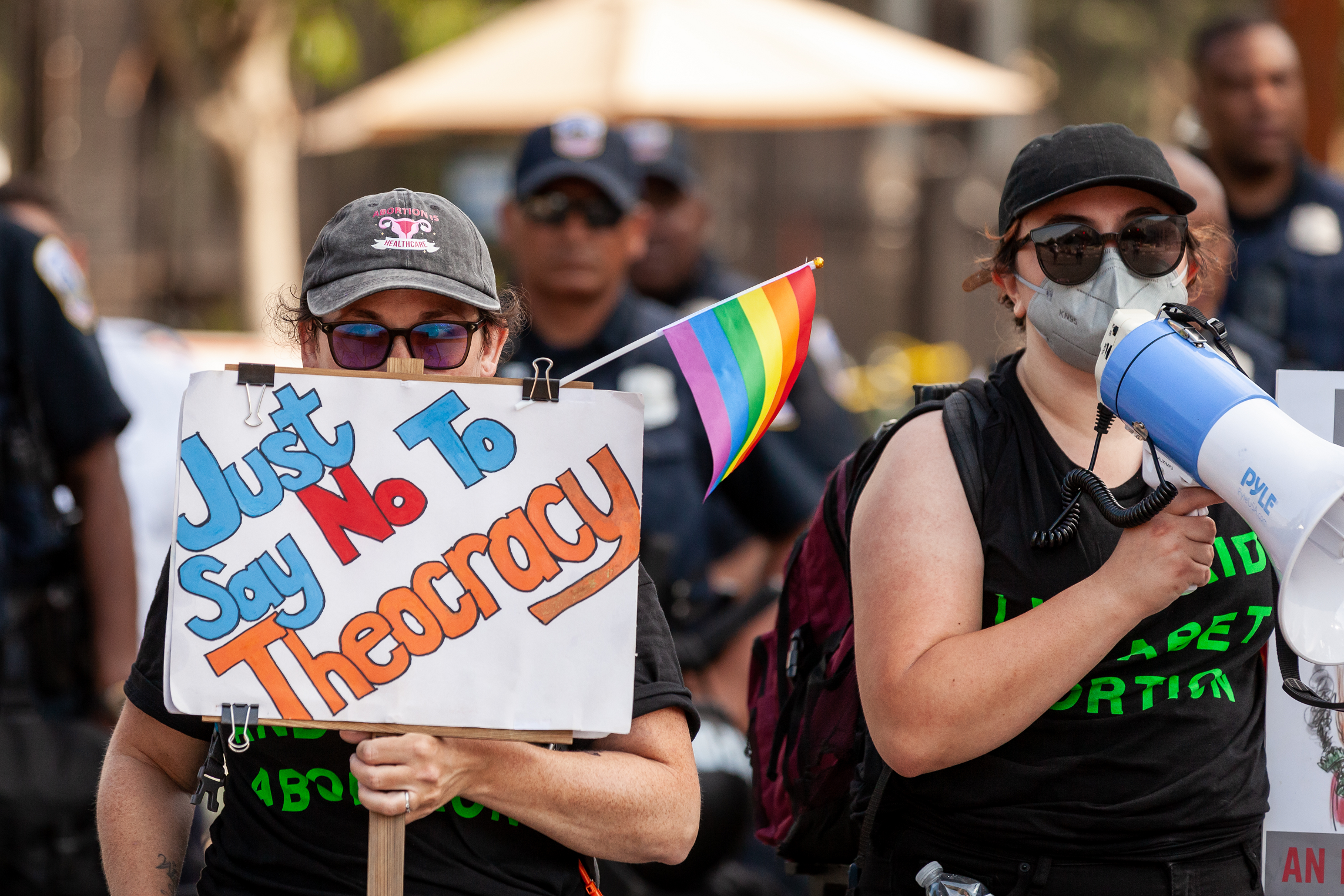Newsletter April 20, 2023
Will Abortion Restrictions Animate Secular Voters?

After the Supreme Court overturned Roe v. Wade last summer, pro-life activists were jubilant. “We pause to recognize the magnitude of this decision—and give all glory to God for this victory,” said Indiana pastor Lucas Miles in an interview with Fox News. Doug Clay, general superintendent of the Assemblies of God, expressed a remarkably similar sentiment: “I’m thankful to God for this historic day…a day to celebrate life.”
Overturning Roe was a long-held goal of the Christian Right. Their successful activism also triggered concerted pushback from those who support abortion rights, a large and growing number of whom identify as secular or nonreligious.
Scholars have previously found that the political activism of conservative Christians alienated more moderate and liberal members who abandoned their formative religious attachments. More recently, political scientist Ruth Braunstein suggested that the political activity of conservative Christians may have even more far-reaching consequences. What if the Christian Right’s successful advocacy on abortion provokes a “political backlash” from Americans who not just disagree with their politics but object to their religious beliefs as well? Is it possible that conservative Christian activism on abortion will motivate secular Americans to become more politically engaged on this issue?
How Much Do Secular Americans Care About Abortion?
It’s difficult to overstate how pro-choice secular Americans are. Pew’s major study on abortion attitudes, released last year, found that 85 percent of religiously unaffiliated Americans said abortion should be legal in all or most cases. No religious group comes close to matching this level of support or opposition. White evangelical Christians are not even as opposed to legal abortion—74 percent say it should be illegal in all or most cases—as unaffiliated Americans are supportive of it.
Religiously unaffiliated Americans are more likely to identify as pro-choice today as well. Nearly two-thirds (65 percent) of religiously unaffiliated Americans say the term “pro-choice” describes their views very well—that jumps to 85 percent when you include people who say it describes them somewhat well. This is a remarkable increase. In 2013, an identical question found that only 54 percent of unaffiliated Americans said the term pro-choice describes them very well.
Unaffiliated Americans not only broadly support legal abortion, but they also prioritize it more than other groups. Last fall, a poll we conducted found that 44 percent of unaffiliated Americans said abortion was a critical issue, compared to only 36 percent of Americans overall. Nonreligious women care even more about the issue—58 percent said abortion was critically important to them, which is substantially greater than among women overall.
The Secular Vote
Religiously unaffiliated Americans have been growing steadily for decades. Recent polls show roughly three in ten adults now claim no formal religious affiliation. They have transformed America’s electorate as well. A Pew post-election analysis found that one in four (25 percent) voters in the 2020 presidential election were religiously unaffiliated, a number that is rapidly rising. Their share of the electorate has grown substantially over the past decade—in 2012 12 percent of all voters were not religious.
The geographic spread of secular voters is critical. Secular voters are not clustered in a few states but make up a sizable share of the electorate across every region. In 44 states, religiously unaffiliated Americans make up at least 20 percent of the state’s adult population. Secular voters receive only sporadic media attention in post-election analyses, much less than their size would seem to warrant. But there’s a good reason for that. Secular voters have varied priorities—they are broadly liberal but lack a distinctive political identity. In a recent post, Ryan Burge finds that secular Americans are hardly monolithic when it comes to politics. There is also no institutional infrastructure or leadership to encourage these voters to coalesce around specific issues. Their political participation is also less consistent than Americans who belong to established religious traditions. Nonreligious Americans tend to drop off in midterm elections and other down-ballot contests. (Exit polls estimate that nonreligious voters made up 22 percent of the vote share in 2022, reflecting their irregular voting habits.)
The Political-Religious Connection
But how much of this is actually about religion at all? Over email, Ruth Braunstein noted that the strong support for abortion rights among secular voters may have as much to do with their politics as their religious worldview. The direction of causality is undeniably murky. If left-leaning Americans are shedding their religious attachments due to politics, as many have argued, is their secular identity even relevant? Is it all about politics?
It’s not possible to tease out exactly what’s going on, but there is some evidence to suggest that the abortion attitudes of nonreligious Americans are not being driven entirely by politics. Secular and religious liberals have distinctive attitudes on abortion. Secular liberals express far fewer moral reservations about abortion and are far more supportive of abortion availability without exception. Nearly three-quarters (74 percent) of secular liberals say abortion should be legal under any circumstances, compared to 54 percent of religious liberals. Secular liberals are more likely to prioritize the issue as well. More than six in ten (61 percent) say abortion is a critical concern, a view shared by less than half (48 percent) of religious liberals.
Nonreligious Americans strongly support abortion rights and appear uniquely troubled by laws seeking to curtail them. It’s reasonable to suppose that unpopular policies, such as the six-week abortion ban, may lead secular voters to participate in elections they might otherwise have sat out. But it will be difficult to prove.
There’s little reliable data on turnout among religiously unaffiliated voters, especially in state-level elections, where many of the abortion battles are being fought. So much remains uncertain. However, if abortion becomes a persistent concern for secular voters, it could profoundly transform the political landscape.








